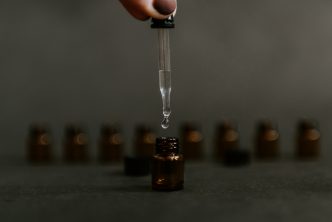Fasting is the voluntary abstention from food for a period, which can range from 12 hours to 90 days or more. Most therapeutic fasts are, however, usually for between three to seven days. Liquid is taken as boiled, or mineral, water and, in some fa
According to Dr Yuri Khirgeyevic Nicolayev, who is widely regarded as the leading living naturopath, fasting helps the body to heal itself in three ways: by allowing the digestive tract to rest; by allowing the mobilization of detoxifying defence mechanisms; and by stimulating subsequent recuperation.
Dr Nicolayev has conducted research which demonstrates the usefulness of fasting in treating schizophrenia. In 1963, he studied 140 intractable schizophrenics who fasted from between 20 to 30 days. Some 44 of these found that their condition improved (YK Nikolayev, Controlled Fasting Cure of Schizophrenia, 1963, Moscow).
Fasting has been found to be helpful for arthritis sufferers. In one study, 20 patients with arthritis and a range of skin disorders, including atopic eczema, rosacea and psoriasis, were kept on a two week fast.
Afterwards, there were significant improvements in the skin complaints and substantial reduction in arthritic pain (H Lithell et al, Acta Dermat Venerol (Stockholm), 1983, 63; 397-403). In another study of rheumatoid arthritis sufferers, their grip strength and functional ability were all improved, and swelling and pain reduced after a week long fast (GF Kroker et all, Clin Ecol, 1984, 3; 137-144).
Fasting can reduce the length, severity and frequency of epileptic seizures (G Hoefel and M Moriarty, Am J Dis Children, 1924, 28; 16-24; WG Lennox and S Cobb, Arch Neurol Psych, 1928, 28; 16-24).
Heart patients can also benefit by abstaining from food. Fasting has been shown to be helpful in relieving a range of cardiovascular diseases, including raised cholesterol, high blood pressure and clogged arteries (TG Duncan et al, Ann NY Acad Sci, 1965, 131: 632-636; and GA Gresham, Atherosclerosis, 1976, 23; 379-391).
Fasting has been shown to be as, or more, effective than drug and other therapies for treating acute pancreatitis inflammation of the pancreas and the autoimmune disease acute glomerulonephritis. A randomized trial of 88 pancreatitis sufferers found that fasting was just as effective as treatment with the drug cimetidine, or by other forms of medical intervention (Digestion, 1984, 30: 224-230). The effect of fasting on glomerulonephritis was so dramatic that the authors of one study concluded that “all patients with acute glomerulonephritis should fast” to improve their prognosis (J Brod et al, Lancet, 1958, i; 760-763).
However, like any other form of therapy, fasting must be treated with respect. It should, therefore, be conducted only under the supervision of a qualified practitioner.
Harald Gaier
Harald Gaier is a registered naturopath, homeopath and osteopath





